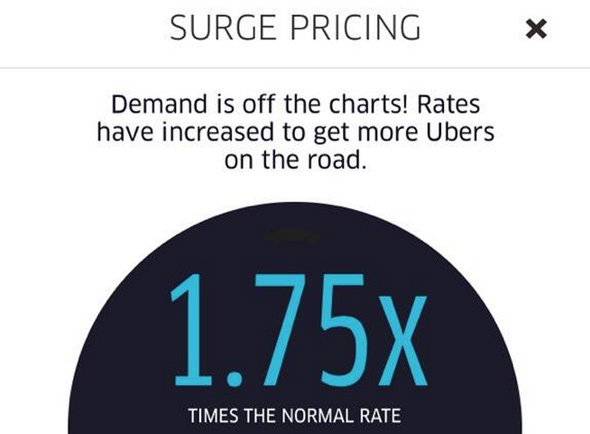 In times of emergency and imminent danger, getting others to safety is top of mind for most of us. But when money is involved, vision can become clouded, and that's exactly what happened with ride-finding mobile start-up Uber last night in Toronto reports Canada.com. San Francisco-based Uber was designed to connect people in need of wheels with rides in private cars. In cases of extreme weather, though, it's not uncommon for the company to jack up its prices to make a few extra bucks, preying on people's fear and desperation. The process is referred to as "surge pricing." Nice guys, eh?
In times of emergency and imminent danger, getting others to safety is top of mind for most of us. But when money is involved, vision can become clouded, and that's exactly what happened with ride-finding mobile start-up Uber last night in Toronto reports Canada.com. San Francisco-based Uber was designed to connect people in need of wheels with rides in private cars. In cases of extreme weather, though, it's not uncommon for the company to jack up its prices to make a few extra bucks, preying on people's fear and desperation. The process is referred to as "surge pricing." Nice guys, eh?
Last night, Toronto got a taste of this Scrooge-esque behaviour, as prices on black-car service were raised 1.75 times their regular costs. Twitter flipped out, obviously, and Uber's PR people were rewarded with a fun time trying to reassure people that cab prices were remaining the same. They went through a similar PR nightmare during Hurricane Sandy in New York, though that one was larger in scope. The public backlash from that round of surge-pricing resulted in the company back-tracking, and making up the extra costs to drivers themselves. And according to Aron Solomon, who wrote a scathing piece on Uber's behaviour, rates on New Years Eve in New York skyrocket to six times the average price.
In fairness, the app sends potential customers a warning when prices will be expected to climb higher than average. And, as the drivers aren't employees of the company, they say they implement surge pricing to give drivers more of an incentive to get out on the roads and help people.
What do you think? Was that a greasy move on Uber's part, or was it justifiable?